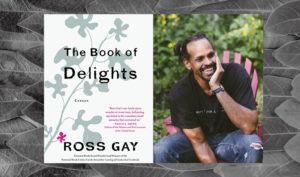Reviews

Reviews,
The Scamming of the Self: On Jia Tolentino’s “Trick Mirror”
Tolentino turns each topic around like a Rubik’s Cube, looking at it from every side, rearranging possibilities but never quite solving the puzzle. That there is no ultimate solution isn’t a defect of these essays. The inherent ouroboros of logic at work here enhances rather than detracts from the structure and power of Tolentino’s ideas; there may be no satisfactory solutions, but that shouldn’t stop us from contemplating the problems.

Reviews,
Is There Life After Meth? On Tracy Daugherty’s “Leaving the Gay Place”
Brammer . . . was not always an unknown legend. Indeed, as Daugherty points out, the year Brammer’s debut novel was published, 1961, also saw the debuts of Harper Lee’s To Kill a Mockingbird, Joseph Heller’s Catch-22, and Walker Percy’s The Moviegoer—and yet, for many critics, The Gay Place was the most promising of the bunch.

Reviews,
Review: “You Know You Want This: Cat Person and Other Stories”
Roupenian can make the reader incredibly uncomfortable and disgusted and riveted all at once, her prose settling like the memory of a bad dream. While “Cat Person” is, and might always be, Roupenian’s most well known piece, she’s definitely proven with this collection that she is no one-hit wonder.

Reviews,
The City of Houston is a Labyrinth: Bryan Washington’s “Lot”
Washington’s Lot is an entrancing work that explores the perpetual identity crisis that is Houston’s greatest gift and curse; what we get is a smorgasbord of different approaches to being a Houstonian and reconciling that maybe, just maybe, identifying with something, whether it be familia, a space, a history, isn’t enough in this lot in life.

Reviews,
Wakes of Joy: On Ross Gay’s “The Book of Delights”
Gay declares every day an occasion to commemorate, similar to how the sun, when rising, also beams. Delight, he says, “suggests both ‘of light’ and ‘without light.’ And both of them concurrently is what I’m talking about. What I think I’m talking about. Being of and without at once. Or: joy.”

Reviews,
Considering Danger: Isolation and Initiation in “The Collected Schizophrenias”
This is a collection that demands, and excavates space, for Wang to be heard on her own terms. She speaks not to people who want to witness her but rather to people who are like her, people have been forced to look at their illnesses from the outside in for as long as mental illness has texturized fictional landscapes with fear and spectacle.

Reviews,
The Audacity of Equality: Fearless Storytelling in Hasan Minhaj’s “Homecoming King”
Homecoming King demonstrates [Minhaj’s] ironic and witty comedy as both self-deprecating and culture-critiquing, nostalgic and of-the-moment, appealing to both the mainstream and the marginalized.

Reviews,
“Hold Yourself Still”: Jenny Odell Would Now Like Your Attention
Refreshingly, How to Do Nothing does not ask its readers to throw their phone out a window or delete their social media accounts or snub their nose at a society that creatively stymies them. Odell writes: “I am less interested in a mass exodus from Facebook and Twitter than I am in a mass movement of attention: what happens when people regain control over their attention and begin to redirect it again, together.”
